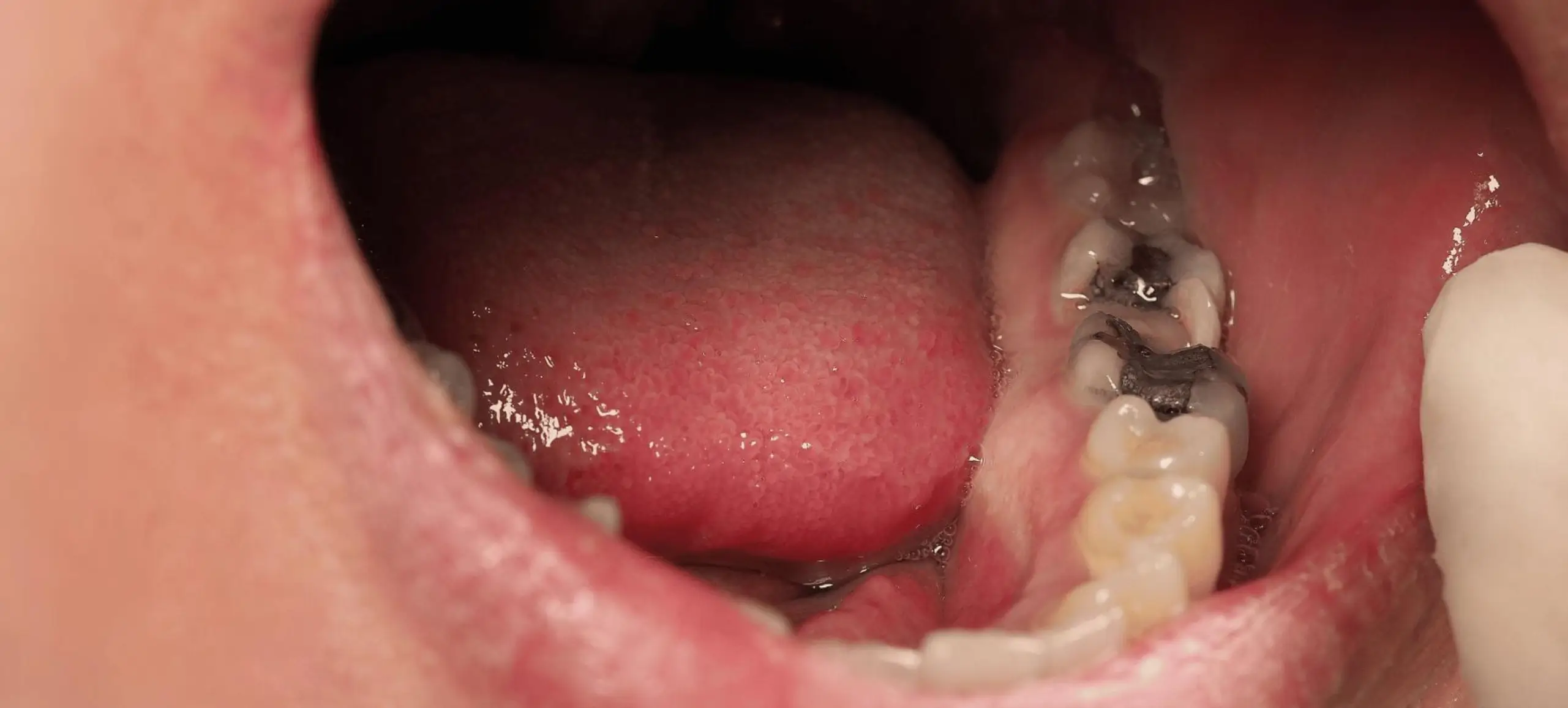Introduction
Seeing a black tooth can be quite alarming. It’s a clear sign that something is wrong in your mouth. But is a black tooth an emergency? Understanding the underlying causes and knowing how to respond is crucial. A black tooth could be due to tooth decay, trauma, or other factors. Recognizing the symptoms and seeking timely treatment can make a big difference. This article will explore the reasons behind a black tooth, when it constitutes an emergency, and what treatments are available. We’ll also discuss preventive measures to keep your teeth healthy and avoid such issues in the future.
Understanding the Causes of Black Tooth
Several factors can cause a tooth to turn black. Here’s a look at the most common causes:
- Tooth Decay: This is the most frequent cause. When bacteria break down the enamel and dentin, it can lead to severe decay. This can turn the tooth black.
- Trauma: A hard hit to the tooth can cause internal bleeding. The blood can cause the tooth to darken over time.
- Dental Restoration Materials: Some fillings and crowns can discolor a tooth. Amalgam fillings, in particular, can give a tooth a gray or black hue.
- Tartar Build-Up: Plaque that isn’t cleaned off turns into tartar. Tartar is yellowish but can turn black if it builds up over time.
- Medications: Certain medications can stain the teeth. Antibiotics like tetracycline can cause discoloration if taken during tooth development.
- Poor Oral Hygiene: Neglecting dental care can lead to plaque, tartar, and eventually decay. This decay can cause a tooth to turn black.
Symptoms of Black Tooth
A black tooth doesn’t always show up overnight. Here are the symptoms to watch for:
- Discoloration: This is the most obvious sign. The tooth may start with brown or gray spots before turning black.
- Pain: If the discoloration is due to decay or trauma, you might feel pain. This can be a sharp, constant pain or sensitivity to hot and cold.
- Bad Breath: A decaying tooth can cause a foul odor in your mouth. This is due to bacteria breaking down the tooth tissue.
- Swelling: If an infection causes the tooth to turn black, you might notice swelling in the gums around the tooth.
- Pus: In severe cases, you might see pus around the black tooth. This indicates an abscess, a serious infection that needs treatment.
Is a Black Tooth an Emergency?
Whether a black tooth is an emergency depends on the cause and symptoms. Here’s how to determine the urgency:
- Pain and Swelling: If you feel intense pain or see swelling, it could be an emergency. This might indicate an infection or abscess, which needs immediate attention.
- Rapid Discoloration: If the tooth turns black quickly, it might be due to trauma or severe decay. Both require prompt dental care.
- No Symptoms: If the tooth is black but you have no pain or swelling, it might not be an emergency. However, you still need to see a dentist to find the cause.
When Black Tooth is Not An Emergency
A black tooth isn’t always an emergency. Here are some scenarios where it might not be urgent:
- Slow Discoloration: If the tooth has been slowly turning black over time, it might not be urgent. This is often due to tartar or an old filling.
- No Pain or Swelling: If there’s no pain or swelling, it might not be an emergency. But you should still see a dentist soon.
- Previous Dental Work: If you had a filling or crown that has discolored, it might not be urgent. However, you should still consult with your dentist to ensure there are no underlying issues.
What are the Treatment Options
Treating a black tooth depends on the cause. Here are the common treatment options:
- Professional Cleaning: If tartar build-up causes discoloration, a professional cleaning can help. The dentist will remove the tartar and polish the tooth.
- Fillings and Crowns: If decay is the cause, the dentist will remove the decayed part and fill it. If the decay is extensive, they might place a crown over the tooth.
- Root Canal: If the tooth has an infection or abscess, a root canal might be necessary. This procedure removes the infected tissue inside the tooth.
- Tooth Extraction: In severe cases, the dentist might need to remove the tooth. This is usually the last resort if other treatments fail.
- Cosmetic Treatments: For teeth discolored by medication or old fillings, cosmetic treatments like veneers or bonding can improve appearance.
How To Prevent It
Preventing a black tooth is easier than treating one. Here are some tips:
- Maintain Good Oral Hygiene: Brush twice a day and floss daily. Use fluoride toothpaste to strengthen your enamel.
- Regular Dental Check-Ups: Visit your dentist every six months. Regular cleanings can prevent tartar build-up and catch issues early.
- Avoid Trauma: Wear a mouthguard during sports to protect your teeth from injury.
- Limit Sugary Foods and Drinks: Sugary foods and drinks can lead to decay. Limit your intake and rinse your mouth after consuming them.
- Be Cautious with Medications: If you need long-term medication, discuss potential side effects with your doctor. They might offer alternatives that don’t affect your teeth.
Conclusion
A black tooth can be a sign of several issues, from decay to dental trauma. While it might not always be an emergency, it’s important to consult with a dentist to determine the cause. Understanding the symptoms and treatments can help you take the right steps. Preventing a black tooth through good oral hygiene and regular dental visits is the best approach. If you notice a black tooth, don’t panic, but do seek professional advice to ensure your dental health stays on track.

